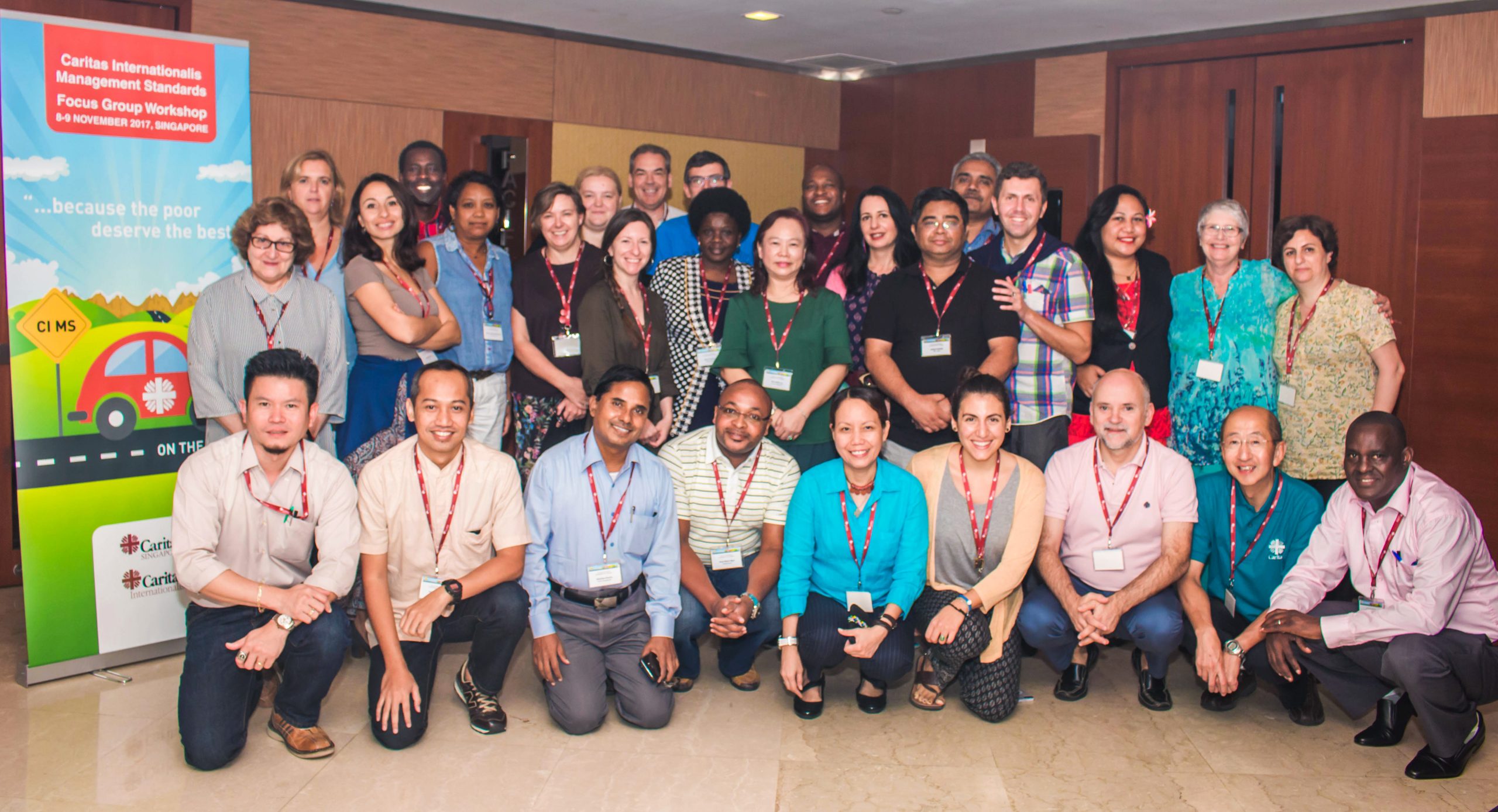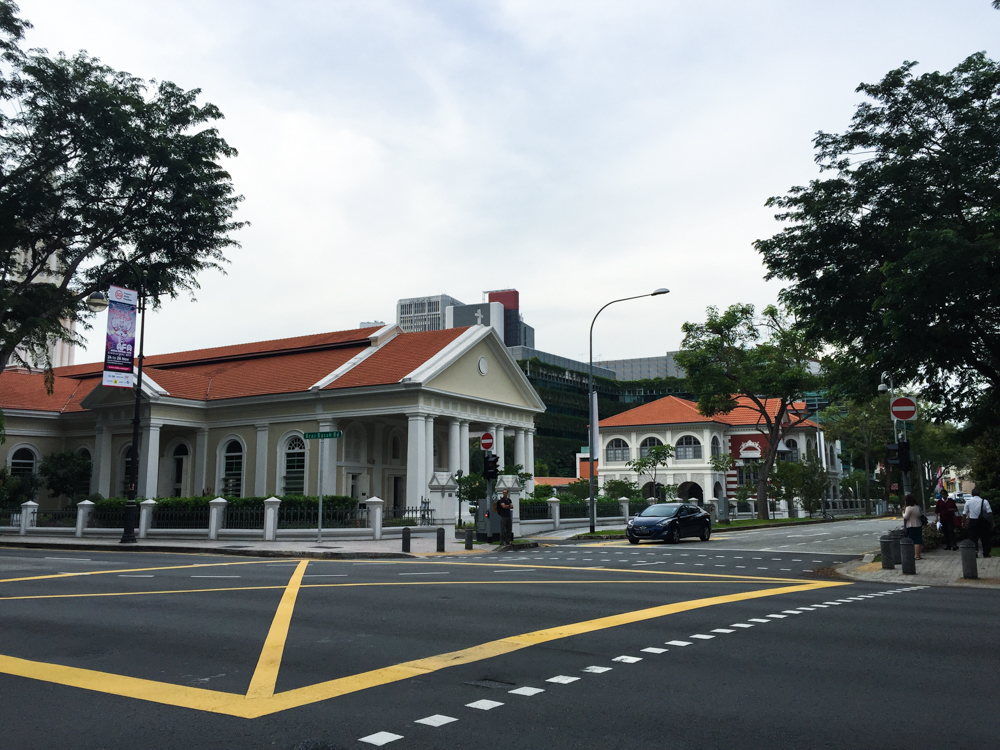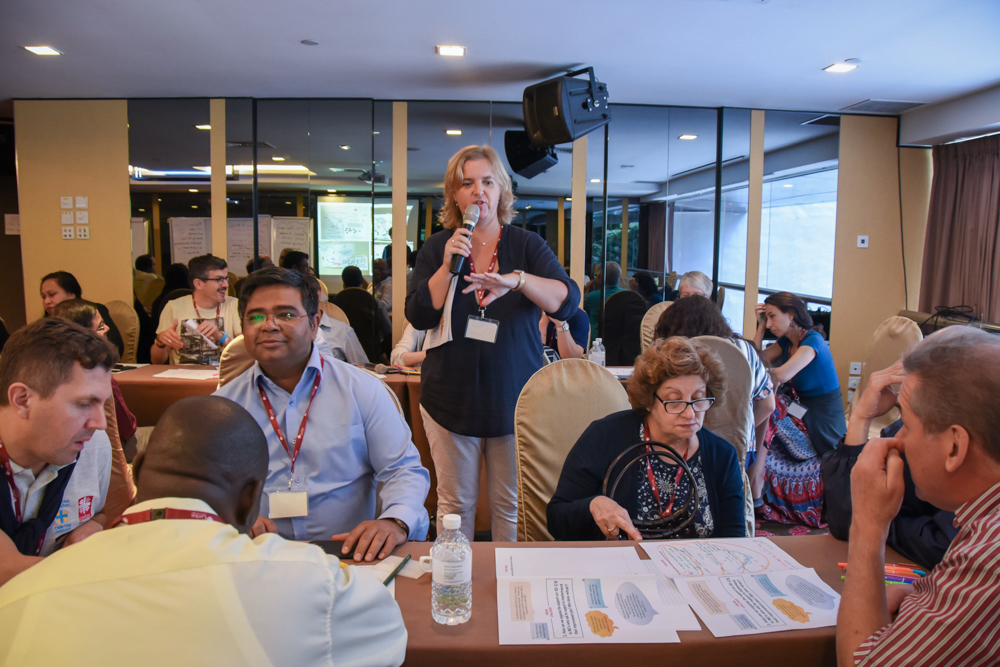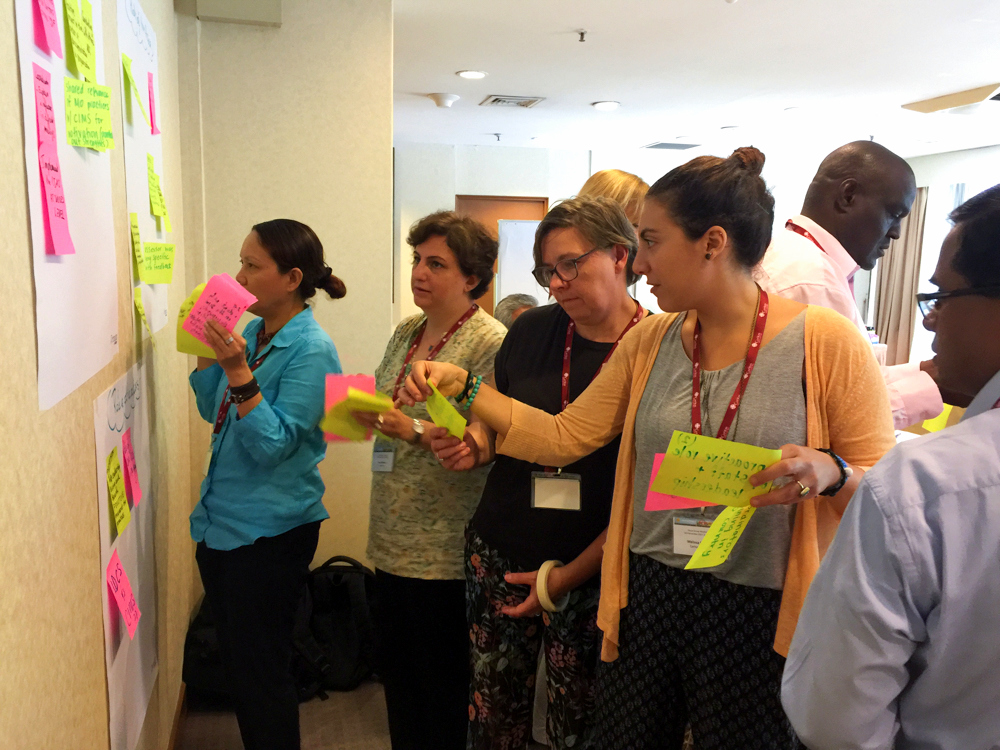No products in the cart.

There was something unique in the evaluation meeting held by Caritas Internationalis in Singapore some time ago. The first was the age variation of the participants. A total of 30 participants from at least 19 countries were staffs who were appointed as coordinators and assessors at their respective Caritas institutions. There were new participants who have been working as Caritas staff for about 1 year and one who has worked as Caritas staff for 15-30 years! From the total number of participants, 13 were women and the rest were men. The second was the location of a meeting place. It was only 5 minutes from Caritas Singapore Office and flanked by the Church of the Good Shepherd Cathedral and Church of St. Peter and Paul.
This meeting was the first evaluation held for the CIMS (Caritas Internationalis Management Standard) process. Caritas Singapore hosted this event in collaboration with Caritas Internationalis. The attendees were from Caritas: Aotearoa-New Zealand, Bangladesh, Bosnia-Herzegovina, Cyprus, Gerogia, India, Indonesia (KARINA), Iran, Japan, Kenya, Lesotho, Luxemburg, Philippines, Spain, Samoa, Ukraine, Uganda, Thailand, Singapore, Zambia, representatives of HQ CRS and CRS India, and CI representatives. Facilitators for this activity were Birgit de Clerck and Nancy Jaspers from Camino Consultant. From 165 members, there are 95 members of Caritas Organization which are implementing CIMS at this moment. KARINA is one of the 5 members that have implemented the CIMS process until the improvement plan stage.


The year 2016 was a milestone for KARINA in improving its effective and efficient humanitarian services. In that year KARINA together with Caritas organizations in the Region of Asia and Mona attended Caritas Internationalis Management Standard (CIMS) training. This training was intended to improve the capacity of Caritas organizations in terms of institutional management. The output was the instruments that help Caritas agencies to service the poor, the small, the oppressed and the excluded to be more effective, efficient and dignified. The standard instruments must be owned by Caritas organizations, namely Laws & Ethical Codes, Governance & Organization, Finance & Accountability, and Stakeholder Involvement.
Humanitarian services are organized not only because of good intentions, but also accompanied by the management of competent institutions and human resources. In April of 2017, KARINA had the opportunity to conduct an assessment with an external assessor appointed by CI, namely Ms. Jeanie Curriano from Caritas Philippines-NASSA. The external assessment produced some recommendations which were then used as consideration in drawing up the Operational Plan of the Strategic Plan KARINA 2018-2022.

During this evaluation process in Singapore, the writer intensively followed discussions on the implementation of CIMS at the diocesan level and sustainability of CIMS results, particularly for institutional capacity building. Both of these are perceived issues in the Caritas network in Indonesia. The evaluation raises various “how to”recommendations that fit the context in each Caritas Region. This context of diversity is the wealth of the Caritas Family in terms of the management of humanitarian organizations and services as its primary mandate.
From the results of this evaluation, there were several inputs from the participants about the CIMS process. The first and most common is how to simplify self-study tools so they can be used in local languages, especially at the diocesan level. The second is how to document the CIMS process so that it can share good and bad practices with others. The third is how to share the documentation of these practices with other Caritas members, especially through Baobab communication media. The last is how to share resources among Caritas agencies for institutional capacity building efforts after the CIMS review process is completed. The plan is, this CIMS process will be reviewed regularly every four years. So the improvements made does not only stop at the development of institutional capacity, but also the quality of service for the poor, the suffering, and the excluded. ● YB
Article Credit: Caritas Indonesia
